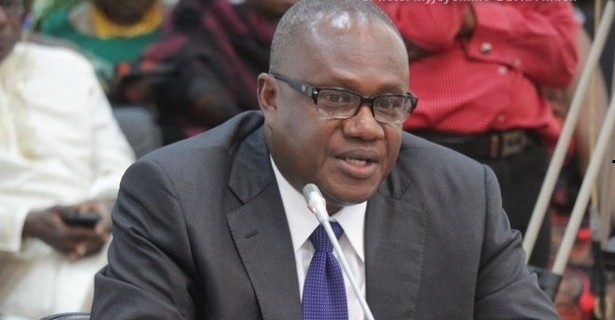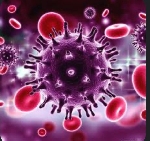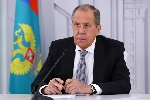Prosper Bani writes on COVID-19
 Prosper Bani
Prosper Bani
"We should all behave like we have the virus and practice physical and social distancing. 80% of the people who contract the disease got it from people who did not know they have the virus."
The coronavirus has been declared a global health pandemic and the virus which started in China in December 2019, has caused several thousands of death across the global. While not all countries have recorded deaths many more countries have registered confirmed cases in their countries and the numbers are increasing.
This is a very serious threat to our very existence as a people. I say this because as we speak there is no vaccine yet to cure the disease.
To emphasize, no WHO certified medication is available to cure the disease. Though we hear of several herbal medications and combination of over the counter drugs that can cure the disease, I would like to warn against such practice and please avoid such dangerous attempts at self-medication.
My assessment of the health pandemic today is that we have a global crisis which has to be managed with the highest sense of urgency and seriousness. I repeat: we have a global crisis which has to be managed with the highest sense of urgency and seriousness. In Africa, we have recorded increasing numbers of cases most of which came from the epicenters of the coronavirus in Asia, the Middle East, Europe and the United States.
It means the virus is now with us and we cannot postpone our actions. This is the time to activate all the Prevention, response and control actions, and these interventions can no longer be knee jerk reactions and board room planning and announcements. We need very pragmatic, comprehensive plan and strategy to plateau the spread of the Coronavirus COVID-19 in Ghana.
On 15th March, the President of the Republic announced some major crisis response measures with the aim of reducing the spread of the virus within Ghana. While I believe consultations have been on-going on what to do, my sense is that the announcement should have been made after the first two cases were recorded. In all the places defined as epicenters of the pandemic today, they started with one case with no deaths and the infection then spread exponentially to now uncontrollable numbers.
In Ghana at this stage and with an official number of sixteen positive-testing cases, that is to say, on March 20, 2020 and within 24 hours, Ghana has recorded five more cases of coronavirus infections and disturbingly, they are all local infections. Therefore, we need to implement the prevention, mitigation, response and control measures aggressively, NOW. We have to undertake this exercise as a “war” against the spread of the virus and ensure that we marshal all our human and logistical capacity to confront the crisis. Bring in the medical personnel and the forces that respond to emergencies to quickly design a strategic crisis management plan which all citizens must be associated with. It can no longer be business as usual.
Let it be known in easy-to-understand language across the country, from the national, regional, districts to the communities where every house hold becomes fully aware of what to do to prevent the spread. Washing hands with soap, limited travel, social and physical distancing, avoid gatherings, control touching your face, use sanitizers and maintaining a hygienic life style are some of the protocols around prevention of self-infection and spread.
Currently, the state of California is in complete shutdown and 40million people have been asked to stay at home as a preventive measure.
The technical coordination team must build an implementation capacity throughout the country to ensure compliance with the Government’s directives, provide the necessary Personal Protective Equipment to the frontline medical and border control personnel, deploy the appropriate resources to the hospitals designated for isolation and treatment as well as other private and government medical facilities at the community levels.
The leaders of this exercise must show evidence through frequent accurate public reporting, of how the surge in these operations are manifesting at all levels. Transparency is key. Hiding information lwill only exacerbate the situation. The citizens can only respond to directives if they trust the messenger.
Some very encouraging news at the airport of high risk passengers on Ethiopian and South African Airlines being returned to their places of origin is a good sign. What about the identified contact persons, who is surveilling them, and ensuring that the self-quarantine regimes are being effected? As important as the foreign persons entry protocols are at our boarders and points of entry, the virus is ALREADY here.
To be sure, the leaders of this exercise must intensify their communication so that every citizen is increasingly aware of the risks and responsibilities. National and private communication institutions must be tasked to communicate messages throughout with their unique media that will enable the flow of information to our people in easily understood language.
Aware that there is a very huge economic gap between the urban and rural areas, additional effort should be made to reach out to all corners of the country to avoid exposing the two systemic economies in Ghana and the resulting two different and separate outcomes of the fight against the coronavirus. It would be regrettable if the various gets to our communities as we know them.
One of the critical actions recommended is the use of running water to wash hands for twenty seconds. Do we have running water in all communities, and if not, there should be the initiation of innovative and practical ways of washing our hands with soap with the same effect as if you used running water. I have observed the use of “veronica bucket” which has a tap on it to facilitate water flow. We must brainstorm alternative improvised options that are suited to the conditions under which our people currently live throughout our country.
There is a gradual change in life style and cultural practices, and this will definitely affect the psychology of a majority of our people. For example, people who have to suspend their regular cultural events, weddings, outdooring, funerals, sporting, entertainment and other community gatherings which also generate economic activities and improves livelihoods, can precipitate social and economic consequences. However we look at it, people’s lives are going to change. It may get worse before it gets better and we all have to brace for the tough ride ahead.
In crisis management, and in planning for prevention we must plan for the worst case scenario depending on the nature and character of the crisis. I would like to see an independent command structure that communicates to the people on a regular basis with the necessary statistics to build confidence among the people and bring everyone on board. The reports and information must be timely, trusted and verifiable to enable the citizens to increase their confidence in the plans and actions.
International and domestic partnerships must be cultivated immediately to help secure more testing kits and life-saving equipment for our hospitals etc., and expanded partnership, which should include civil society, media, traditional leaders, market queens, opinion leaders, political parties and their agents, academia, and business persons.
Testing for the virus is the only scientific way to determine whether a person is infected or not and our leaders must ensure that medical facilities have adequate testing kits. As we are aware, there is a reported global shortage of testing kits and materials that make the kits. Given the huge global demand, our countries are not going to get adequate supplies. The testing process must be seen to be aggressively done, with the expansion of testing centers across the country. Given the demography of Ghana, I would like to see centers covering the southern, middle and northern belts and there should not be any cost to the citizen during this emergency stage of the crisis management. This will facilitate the process and shorten the period between testing, isolation and treatment.
No doubt, such huge operations require massive injection of resources and government and its partners must mobilize sufficient funds to cover all aspects of the rollout of the crisis prevention and recovery effort.
The non-availability of resources for such operations to save lives cannot be negotiated or postponed. All actions must be well defined and led by competent persons with appropriate responsibilities and with necessary consequences for failure.
All relevant institutions, personnel and citizens must join hands to support the national effort to flatten the rise of the virus by following the preventive protocols and guidelines.
The pronouncement of the President must be respected at all levels especially some government institutions, churches and other organizations undertaking out-door activities which gather more than 25 persons. For our own safety, let the people have a stake in the protection of their own lives, as well as the protection of their space.
Our communities hold the key to the success of this operation, when we get everyone to understand the severity of the situation. We should encourage social and physical distancing and respecting other preventive protocols, government and partners providing adequate resources for managing the crisis and in particular providing the necessary testing kits for testing, contact tracing, quarantining, isolation and treatment centers, and providing timely and trusted information to our people. There are also best practices from South Korea, Singapore and Hong Kong, where aggressive testing, tracing and isolation of infected persons has helped to flatten their curve.
If we do not do it right, the consequences will be a complete shutdown of all aspects of the country leading to dire economic outcomes.
Source: ClassFMonline.com/ Prosper Bani, Former Head of UNDP Crisis Prevention and Recovery Team for Africa
Trending Features

Lithium: A billion-dollar mineral, a withdrawn bill, and a country at a crossroads
15:14
When silence speaks louder than words
12:12
Project finance: A viable path to build Ghana’s infrastructure without overstretching or overburdening public Debt Ghana is facing mounting fiscal and infrastructure financing pressures
10:24
As awareness campaigns fade, new HIV infections rise
09:48
Russia–Africa:New horizons for old friends
09:23
Justice for sale: When poverty becomes a barrier to the Rule of Law
10:13




